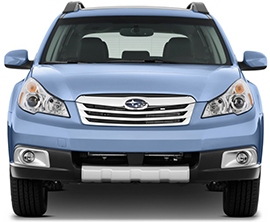FAQs
If you have questions, you've come to the right place for answers. We've compiled the questions that we receive often about deposit insurance, mortgages, our online services and more. Check here to find what you need.
Deposit Insurance
What is the NCUA?
The National Credit Union Administration is the federal agency charged with administering the National Credit Union Share Insurance Fund. This is the insurance that guarantees your deposits as described below.
How much of my money is covered?
Like FDIC coverage for banks, your share savings, money markets, checking and certificate deposits are covered up to $250,000, and IRA shares and certificates are covered up to $250,000. If you have multiple ownership structures or multiple owners, you may have more coverage. Our staff can help, or go to http://webapps.ncua.gov/ins/ for the NCUA’s Electronic Share Insurance Calculator.
Are my business deposits insured?
All funds invested in an account or accounts by a corporation, partnership or unincorporated association engaged in independent activity are added together and insured to the $250,000 limit. If they aren’t used for an independent activity, they will be added to your individual deposits for determining insurance limits.
Should I withdraw my money in cash?
The risks posed by carrying large sums of cash, and keeping it at home, are significant. We do not advise people to withdraw their savings in cash.
Where can I get more information?
You can access the NCUA’s Share Insurance FAQ’s Questions and Answers for more in-depth information. The NCUA’s website, also, has a Share Insurance Tool Kit with numerous helpful publications and links. You may also contact NCUA's Consumer Assistance Center with questions about Share Insurance between 8 a.m. and 6 p.m. (EDT) at 1-800-755-1030, press 1 for share insurance questions.
Mortgages
How do I know how much house I can afford?
Generally speaking, you can purchase a home with a value of two or three times your annual household income. However, the amount that you can borrow will also depend upon your employment history, credit history, current savings and debts, and the amount of down payment you are willing to make. You may also be able to take advantage of special loan programs for first time buyers to purchase a home with a higher value. Give us a call, and we can help you determine exactly how much you can afford.
What is the difference between a fixed-rate loan and an adjustable-rate loan?
With a fixed-rate mortgage, the interest rate stays the same during the life of the loan. With an adjustable-rate mortgage (ARM), the interest changes periodically, typically in relation to an index. While the monthly payments that you make with a fixed-rate mortgage are relatively stable, payments on an ARM loan will likely change. There are advantages and disadvantages to each type of mortgage, and the best way to select a loan product is by talking to us.
How is an index and margin used in an ARM?
An index is an economic indicator that lenders use to set the interest rate for an ARM. Generally the interest rate that you pay is a combination of the index rate and a pre-specified margin. Three commonly used indices are the One-Year Treasury Bill, the Cost of Funds of the 11th District Federal Home Loan Bank (COFI), and the London InterBank Offering Rate (LIBOR).
How do I know which type of mortgage is best for me?
There is no simple formula to determine the type of mortgage that is best for you. This choice depends on a number of factors, including your current financial picture and how long you intend to keep your house. True North Federal Credit Union can help you evaluate your choices and help you make the most appropriate decision.
What does my mortgage payment include?
For most homeowners, the monthly mortgage payments include three separate parts:
- Principal: Repayment on the amount borrowed
- Interest: Payment to the lender for the amount borrowed
- Taxes & Insurance: Monthly payments are normally made into a special escrow account for items like hazard insurance and property taxes. This feature is sometimes optional, in which case the fees will be paid by you directly to the County Tax Assessor and property insurance company.
How much cash will I need to purchase a home?
The amount of cash that is necessary depends on a number of items. Generally speaking, though, you will need to supply:
- Earnest Money: The deposit that is supplied when you make an offer on the house
- Down Payment: A percentage of the cost of the home that is due at settlement
- Closing Costs: Costs associated with processing paperwork to purchase or refinance a house


